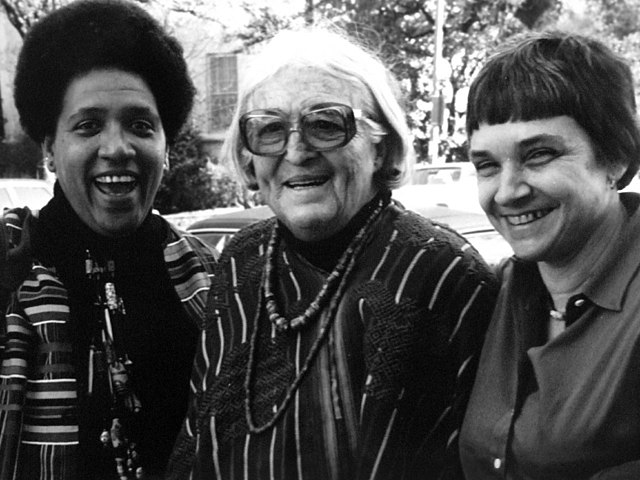American Women in Poetry: Audre Lorde
Birth of New Wave Feminism
A patriarchy deeply engrained in American society burdened twentieth century women with a yearning for freedom, and a dissatisfaction with the confines of traditional feminine roles. Despite early feminism fighting for women's places outside of the home, these dreams were quickly crushed. By the 1950s, traditional gender roles were policed more than ever, further suppressing women. Betty Friedan describes this phenomenon in her famous book "The Feminine Mystique" as the problem that has no name- the loss of female identity apart from the wife and mother.
"They were taught to pity the neurotic, unfeminine, unhappy women who wanted to be poets or physicists or presidents."
-The Feminine Mystique, Betty Friedan
The 1960s and 70s marked a shift in women's popular attitudes. The housewife was no longer the dream, as it was one that had stolen independent purpose from women for years. Radical change was filling popular culture and politics as the modern feminist revolution began.
The feminist movement was catalyzed by intellectuals, writers, artists, and activists- Audre Lorde being one of them.
Audre Lorde and her contribution to the feminist movement
Born in 1934, Audre Lorde grew up around the changing society of the 50s. Her well renowned writing during adulthood was foundational to feminist cultural theory. In her essays she developed concepts of the woman as a human in society, more specifically the Black woman and the lesbian woman.
Blaise Freeman, Audre Lorde Speaking, 2007. 2/20/2025
Lorde explored the senses in her book "Poetry is Not a Luxury: Senses, Self, and Affect in Social Transformation." During the feminist revolution writers and artists often elaborated on the idea that aesthetics and affect became a part of language and social formation. Joan Didion described modern feminism as Emersonion, as it reintroduced the transcendental ideals of focusing inwards and valuing one's self.
Black Feminism
While feminism was strong and politically relevant in the 60s and 70s, Black feminism failed to receive the same level of attention. Black women who had been fighting alongside White women did not experience the same validation. They found themselves in a greater battle: one against racism and sexism. Lorde shared her experience as a Black woman in her poetry. In her writing she described her connection with goddesses of African mythology when she took a trip to Benin, and she often explored her identity within the intersections of race and gender. She co-founded Kitchen Table: Women of Color Press in 1981 and advocated for women living under apartheid South Africa.
"I have been woman
for a long time
beware my smile
I am treacherous with old magic
and the noon's new fury
with all your wide futures
promised
I am
woman
and not white."
-Audre Lorde, "A Woman Speaks"
Lesbian Feminism
Lesbian feminists were a largely hated group by many traditionalists because they were often separationist and had no connection to men in responsibility, reliance, or affection. They contradicted the strict patriarchal values that held women in place. Lorde wrote of her lesbian identity in her poetry and essays, and also advocated for gay rights. In 1979, she spoke at the National March on Washington for Lesbian and Gay Rights.

K. Kendall, Audre Lorde, Meridel Lesueur, and Adrienne Rich, 1980. 2/20/2025


